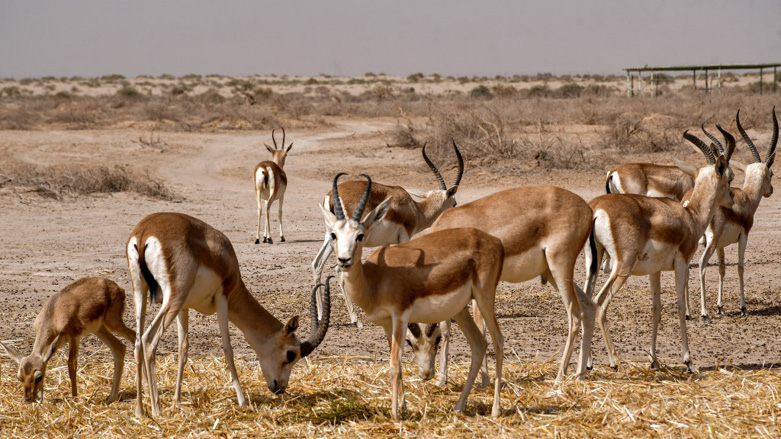Iraqi gazelles facing extinction due to effects of climate change: FAO
The animals are also on the "Red List" of the International Union for Conservation of Nature, indicating that they are endangered.

ERBIL (Kurdistan 24) – Climate change has pushed the Iraqi gazelles in Muthana's Sawa wildlife reserve to the brink of extinction, the United Nations' food and agriculture agency announced on Thursday.
In just one month, the number of gazelles at the reserve dropped from 148 to 87 due to thirst and hunger caused by severe drought.
In a visit to the southern Iraqi province of Muthana, the Food and Agriculture Organization, known as FAO, met with the local authorities to discuss the issue, according to a statement shared on Twitter.

Known as rhim gazelles, the rare animals have been around for a long time in Iraq, but now they are threatened with extinction "due to the impact of climate change," the agency said.
The agency also said it is making efforts to prevent the gazelles, distinguishable from their curved thorns and dust-colored coats, from going extinct.
The animals are also on the "Red List" of the International Union for Conservation of Nature, indicating that they are endangered.
"They no longer have a supply of food because we have not received the necessary [government] funds," the reserve's director, Turki al-Jayashi, recently told AFP.
"The climate has also strongly affected the gazelles," he added.
Ranked as the fifth most vulnerable country in the world to the effects of climate change, Iraq has recently experienced increased desertification caused by drought, lack of precipitation, and improper agricultural practices.

Frequent and severe dust storms have become a new norm in the country, hospitalizing thousands with breathing difficulties and grounding flights.
There are only 224 gazelles altogether in Iraq's three other reserves, according to a Ministry of Agriculture official who spoke to AFP on condition of anonymity.
